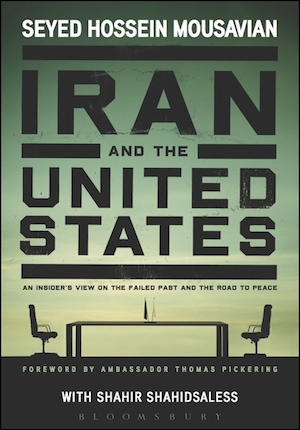The Non-Proliferation Treaty (NPT) is the sole internationally recognized treaty which has been dedicated to preventing the proliferation of nuclear weapons. The treaty was recognized in 1970 as an international law. At that time, five permanent members of the United Nations Security Council (the United States, the UK, Russia, China, and France) were nuclear-powered states. Following the conclusion of the NPT, three more countries, namely, India, Pakistan and North Korea, in addition to Israel developed nuclear weapons as well. These are also the sole countries that have so far refrained from accession to the NPT. At present, 189 countries are member states of this treaty and committed to creating a world free from nuclear weapons. The NPT is based on three major principles: 1. Nuclear disarmament, according to which big powers have been obligated to gradually destroy their arsenals of nuclear weapons; 2. Nonproliferation of nuclear weapons, and 3.Commitment of countries to promote peaceful nuclear activities.
Member states of the NPT have committed to hold an NPT review conference every five years in order to review performance of the parties to the treaty with regard to their treaty obligations. As a result, a preparatory committee was set up in New York, which meets every year to discuss the implementation of the treaty and take necessary decisions in this regard. At the moment, the third session of the Preparatory Committee for the 2015 Review Conference of the Parties to the NPT is underway at the United Nations Office in New York (and will continue until May 9, 2014). An expert delegation from the Islamic Republic of Iran is also present at the session.
During the NPT review conference in 2010, an action plan known as the NPT Action Plan was adopted by the participants. The action plan consisted of 64 actions, including 22 actions on the nuclear disarmament and 23 actions on the nonproliferation of nuclear weapons. The rest of the plan was focused on the peaceful use of nuclear energy.
A review of reports prepared by specialized international institutions will show that out of the aforesaid 64 actions stipulated in the NPT Action Plan, about 28 actions have been relatively implemented. The implementation of 21 actions has been very poor while the degree of progress on 15 other actions has remained practically at zero. The main point, however, is that most of those 28 actions that have been relatively implemented are related to promoting cooperation on the peaceful use of nuclear energy. On the contrary, those 15 actions, which have not been implemented yet, are all related to nuclear disarmament.
Let’s not forget that the first and foremost goal of the NPT is to create a world free from nuclear weapons. Now, more than 40 years after the treaty entered into force and despite the fact that 15 actions specified by the treaty and agreed upon by international community are related to nuclear disarmament, big powers have still retained more than 20,000 articles of nuclear weapons of which 90 percent is in the possession of the United States and Russia. As a result, the big powers have not only refused to fulfill their obligations with regard to the promotion of nuclear disarmament, but have also modernized their stockpiles of nuclear weapons during the past decades. Without a doubt, the five permanent members of the UN Security Council are the biggest violators of the NPT while, at the same time, having the highest responsibility for the full implementation of the contents of the treaty.
During the past decade, big global powers have focused all the resources of international community on the Islamic Republic’s nuclear energy program and have imposed the most brutal sanctions against the country in spite of the fact that Iran is a party to the NPT, has no nuclear weapons and, according to frequent reports by the International Atomic Energy Agency (IAEA), there has been no diversion in its nuclear energy program toward production of nuclear weapons. However, the same powers have been largely indifferent toward possession of nuclear weapons by countries like India, Pakistan and Israel, have taken no steps against them, and have even established strategic relations with them! At the same time, those big powers have never been taken to task for the violation of their obligations with regard to nuclear disarmament.
Read More
“Proposals for Better Implementation of Non-Proliferation Treaty,” Hossein Mousavian, Iran Review, May 7, 2014.
